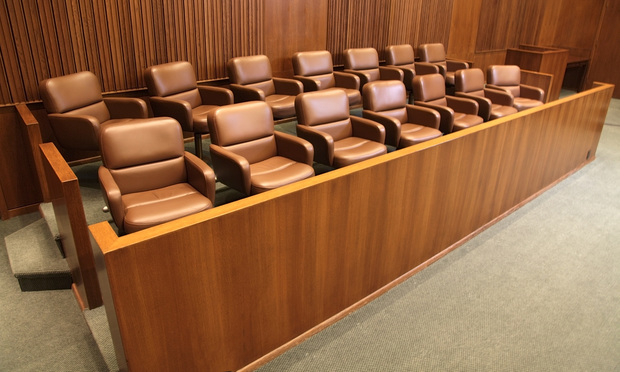While the state judiciary considers how to restart jury trials amid the COVID-19 pandemic, the New Jersey State Bar Association has declared that certain potential changes should be off-limits.
Virtual jury trials are unconstitutional, the bar association’s Committee on the Resumption of Jury Trials said in a report made public late Monday.
This content has been archived. It is available through our partners, LexisNexis® and Bloomberg Law.
To view this content, please continue to their sites.
Not a Lexis Subscriber?
Subscribe Now
Not a Bloomberg Law Subscriber?
Subscribe Now
LexisNexis® and Bloomberg Law are third party online distributors of the broad collection of current and archived versions of ALM's legal news publications. LexisNexis® and Bloomberg Law customers are able to access and use ALM's content, including content from the National Law Journal, The American Lawyer, Legaltech News, The New York Law Journal, and Corporate Counsel, as well as other sources of legal information.
For questions call 1-877-256-2472 or contact us at [email protected]

 Jury box
Jury box








